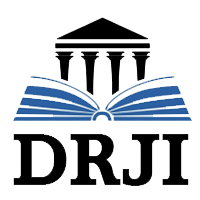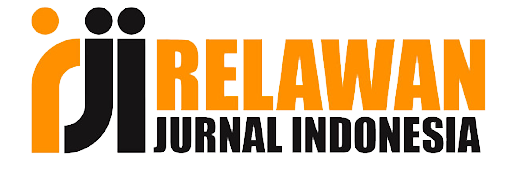Pengaruh Public Service Motivation terhadap Organizational Citizenship Behavior: Peran Moderasi Service Climate
Abstract
This study aims to analyse the effect of public service motivation (PSM) on organizational citizenship behaviour (OCB) and the moderating role of service climate in the relationship between the two variables in the context of the State Civil Apparatus in Indonesia. This research uses a cross-sectional study approach with a survey method and involves 105 state civil apparatus employees in East Java Province who serve for at least one year. The sample was drawn using accidental sampling technique. Participants completed an online questionnaire to measure the three research variables. PSM was measured with Public Service Motivation Scale (α:.81), service climate was measured with Service Climate Scale (α:.89), and OCB was measured OCB Scale (α:.94). The data analysis process in this study used moderated regression analysis techniques to test the research hypothesis. The results of this study indicate that public service motivation has a significant positive effect on organizational citizenship behavior, and service climate shows a significant positive moderating role in strengthening the relationship between public service motivation and organizational citizenship behavior.
Penelitian ini bertujuan untuk menganalisis pengaruh public service motivation (PSM) terhadap organizational citizenship behavior (OCB) serta peran moderasi service climate dalam hubungan kedua variabel tersebut dalam konteks Aparatur Sipil Negara di Indonesia. Penelitian ini menggunakan pendekatan cross-sectional study dengan metode survei serta melibatkan 105 pegawai aparatur sipil negara di Provinsi Jawa Timur yang mengabdi sekurang-kurangnya selama satu tahun. Sampel diambil menggunakan teknik accidental sampling. Partisipan mengisi kuesioner daring untuk mengukur ketiga variabel penelitian. PSM diukur dengan menggunakan Public Service Motivation Scale (α:.81), service climate diukur dengan menggunakan Service Climate Scale (α:.89), dan OCB diukur dengan menggunakan OCB Scale (α:.94). Proses analisis data pada penelitian ini menggunakan teknik analisis moderated regression analysis untuk menguji hipotesis penelitian. Hasil pada penelitian ini menunjukkan bahwa public service motivation berpengaruh positif yang signifikan terhadap organizational citizenship behavior, serta service climate menunjukkan adanya peran moderasi positif yang signifikan dalam memperkuat hubungan antara public service motivation dengan organizational citizenship behavior.
Keywords
Full Text:
PDFReferences
Abdelmotaleb, M., & Saha, S. K. (2019). Corporate social responsibility, public service motivation and organizational citizenship behavior in the public sector. International Journal of Public Administration, 42(11), 929–939.
Badan Kepegawaian Negara. (2022). Buku Statistik Aparatur Sipil Negara.
Bottomley, P., Mostafa, A. M. S., Gould-Williams, J. S., & León-Cázares, F. (2016). The impact of transformational leadership on organizational citizenship behaviours: The contingent role of public service motivation. British Journal of Management, 27(2), 390–405. https://doi.org/10.1111/1467
Carrasco, H., Martínez-Tur, V., Peiró, J. M., & Moliner, C. (2012). Validation of a measure of service climate in organizations. Revista de Psicología Del Trabajo y de Las Organizaciones, 28(2), 69–80. https://doi.org/10.5093/tr2012a6
Chan, K. W., Gong, T., Zhang, R., & Zhou, M. (2017). Do employee citizenship behaviors lead to customer citizenship behaviors? The roles of dual identification and service climate. Journal of Service Research, 20(3), 259–274.
Chen, C. T., Hu, H. H. S., & King, B. (2018). Shaping the organizational citizenship behavior or workplace deviance: Key determining factors in the hospitality workforce. Journal of Hospitality and Tourism Management, 35, 1–8.
Darto, M. (2014). The role of organizational citizenship behavior (OCB) in the individual performance improvement in the public sector: A theoretical and empirical analysis. Jurnal Borneo Administrator, 10(1), 10–34.
de Geus, C. J. C., Ingrams, A., Tummers, L., & Pandey, S. K. (2020). Organizational citizenship behavior in the public sector: A systematic literature review and future research agenda. Public Administration Review, 80(2), 259–270.
Elche, D., Ruiz-Palomino, P., & Linuesa-Langreo, J. (2020). Servant leadership and organizational citizenship behavior: The mediating effect of empathy and service climate. International Journal of Contemporary Hospitality Management, 32(6), 2035–2053.
Filsafati, A. I., & Ratnaningsih, I. Z. (2016). Hubungan antara subjective well-being dengan organizational citizenship behavior pada karyawan PT Jateng Sinar Agung Sentosa Jawa Tengah & DIY. Jurnal Empati, 5(4), 757–764.
Grasiaswaty, N. (2021). Reviu sistematik penelitian organizational citizenship behavior (ocb) di Indonesia. Buletin Psikologi, 29(1), 28.
Hofstede, G. (2011). Dimensionalizing cultures: The hofstede model in context. Online Readings in Psychology and Culture, 2(1). https://doi.org/10.9707/2307-0919.1014
Huang, J., Li, W., Qiu, C., Yim, F. H., & Wan, J. (2016). The impact of ceo servant leadership on firm performance in the hospitality industry. International Journal of Contemporary Hospitality Management, 28(5), 945–968.
Ingrams, A. (2020). Organizational citizenship behavior in the public and private sectors: A multilevel test of public service motivation and traditional antecedents. Review of Public Personnel Administration, 40(2), 222–244.
Jin, M. H., McDonald, B., & Park, J. (2018). Does public service motivation matter in public higher education? Testing the theories of person–organization fit and organizational commitment through a serial multiple mediation model. The American Review of Public Administration, 48(1), 82–97. https://doi.org/10.1177/0275074016652243
Jnaneswar, K., & Ranjit, G. (2022). Organizational justice and organizational citizenship behaviour: The mediating role of psychological ownership. Journal of Organizational Effectiveness, 9(1), 1–19.
Kim, S., Vandenabeele, W., Wright, B. E., Andersen, L. B., Cerase, F. P., Christensen, R. K., Desmarais, C., Koumenta, M., Leisink, P., Liu, B., Palidauskaite, J., Pedersen, L. H., Perry, J. L., Ritz, A., Taylor, J., & De Vivo, P. (2013). Investigating the structure and meaning of public service motivation across populations: Developing an international instrument and addressing issues of measurement invariance. Journal of Public Administration Research and Theory, 23(1), 79–102.
Kumar, M., & Shah, S. A. (2015). Psychometric Properties of Podsakoff’s Organizational Citizenship Behaviour Scale in the Asian Context. http://www.ijip.in
Mostafa, A. M. S., Gould-Williams, J. S., & Bottomley, P. (2015). High-performance human resource practices and employee outcomes: The mediating role of public service motivation. Public Administration Review, 75(5), 747–757.
Obedgiu, V., Bagire, V., & Mafabi, S. (2017). Examination of organizational commitment and organizational citizenship behaviour among local government civil servants in Uganda. Journal of Management Development, 36(10), 1304–1316.
Ombudsman. (2018). Laporan Tahunan Ombudsman Republik Indonesia 2018. Ombudsman RI.
Ombudsman. (2022). Laporan Tahunan Ombudsman Republik Indonesia 2022.
Perry, J. L., & Wise, L. (1990). The Motivational Bases of Public Service. In Wise Source: Public Administration Review (Vol. 50, Issue 3, pp. 367–373).
Piatak, J. S., & Holt, S. B. (2020). Disentangling altruism and public service motivation: Who exhibits organizational citizenship behaviour? Public Management Review, 22(7), 949–973. https://doi.org/10.1080/14719037.2020.1740302
Pletzer, J. L., Oostrom, J. K., & de Vries, R. E. (2021). Hexaco personality and organizational citizenship behavior: A domain- and facet-level meta-analysis. Human Performance, 34(2), 126–147. https://doi.org/10.1080/08959285.2021.1891072
Salanova, M., Agut, S., & Peiró, J. M. (2005). Linking organizational resources and work engagement to employee performance and customer loyalty: The mediation of service climate. Journal of Applied Psychology, 90(6), 1217–1227.
Schneider, B., White, S. S., & Paul, M. C. (1998). Linking service climate and customer perceptions of service quality: Test of a causal model. Journal of Applied Psychology Psychological Association, Inc (Vol. 83, Issue 2, pp. 150–163).
Subramani, A., Akbar Jan, N., Gaur, M., & Vinodh, N. (2015). Impact of organizational climate on organizational citizenship behaviour with respect to automotive industries at ambattur industrial estate, Chennai (vol. 13, Issue 8, pp. 6391–6408). https://www.researchgate.net/publication/302192045
Theodora, T., & Ratnaningsih, I. (2018). Hubungan antara psychological capital dengan organizational citizenship behavior pada pramuniaga pt x cabang Tangerang. Jurnal Empati, 7(2), 285–293.
Walumbwa, F. O., Hartnell, C. A., & Oke, A. (2010). Servant leadership, procedural justice climate, service climate, employee attitudes, and organizational citizenship behavior: A cross-level investigation. Journal of Applied Psychology, 95(3), 517– 529. https://doi.org/10.1037/a0018867
Wright, B. E., & Grant, A. M. (2010). Unanswered questions about public service motivation: Designing research to address key issues of emergence and effects. Public Administration Review, 70(5), 691–700.
Yeo, M., Ananthram, S., Teo, S. T. T., & Pearson, C. A. (2015). Leader–member exchange and relational quality in a singapore public sector organization. Public Management Review, 17(10), 1379–1402. https://doi.org/10.1080/14719037.2013.806573
DOI: https://doi.org/10.24176/perseptual.v9i1.12044
Refbacks
- There are currently no refbacks.

Jurnal Psikologi Perseptual (eISSN 2580-9520) is licensed under a Creative Commons Attribution-ShareAlike 4.0 International License














